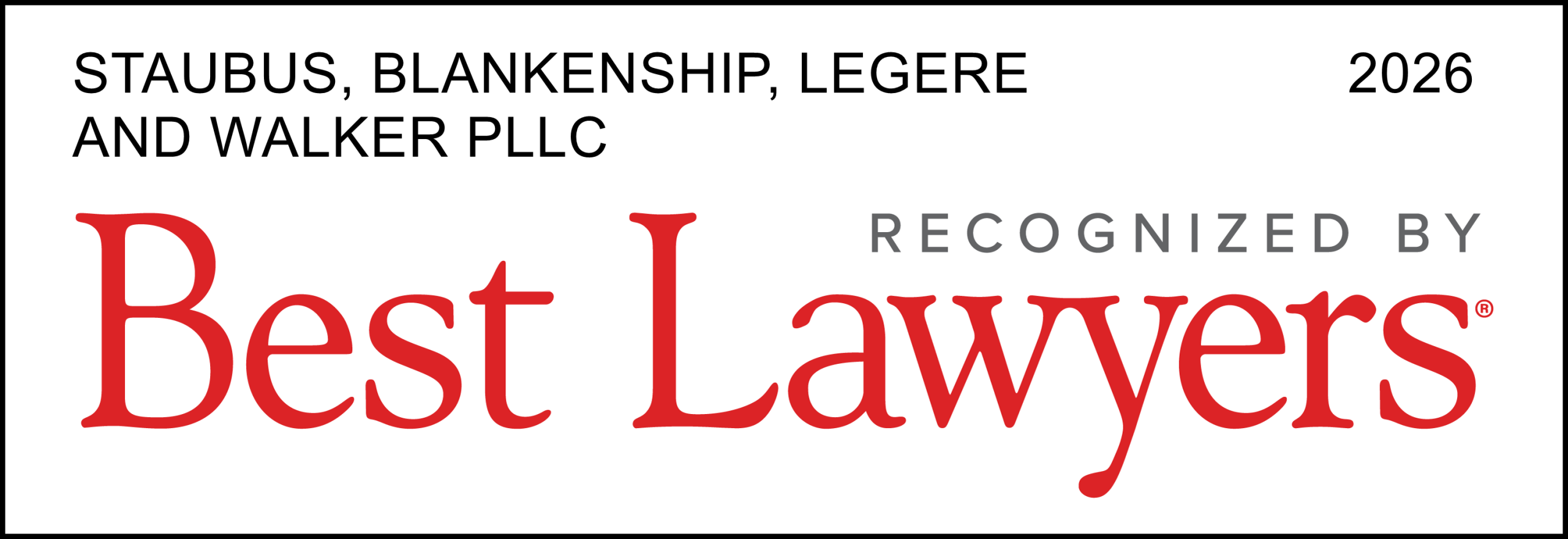
It feels overwhelming enough to plan for the future, a home, children, college, or even retirement. There is always something on the horizon to worry about or plan for. While many people are wrapped up in “what comes next,” they neglect thinking about the inevitable. As the saying goes, nothing is certain except for death and taxes, and although many of us don’t want to think about death, building a solid strategy for our passing is a must. Don’t leave your loved ones in limbo or battling it out in the courts. Planning for the inevitable, no matter how far down the road it may be, is a smart move for you and your family.
A trust can be an effective estate planning tool that allows you to distribute your property and assets as you see fit and ensure that your family and beneficiaries are cared for. Not sure where to start? The Dallas trust planning lawyers at Staubus, Blankenship, Legere and Walker PLLC can help. We have over 100 years of combined experience in estate planning, probate, and litigation. This powerful knowledge, combined with our detailed, strategic planning, means that your estate and your family’s future are in good hands.
Contact our office today at (214) 833-0100 to schedule a consultation. We can review your situation and help you find the best solutions for your trust planning needs.
What Is a trust?
A trust is a legally binding agreement allowing a third party, called a trustee, to hold and oversee the distribution of assets to named beneficiaries. The individual who establishes the trust is known as the grantor or the settlor. One of the main benefits of establishing a trust is the fact that trusts typically avoid probate, a sometimes lengthy process. By avoiding going through probate, beneficiaries can gain access to the trust’s assets more quickly. Not only does this method save time, but it may also save on court fees and potentially reduce estate taxes.
Different Types of Trusts
There are a variety of different trust options that an individual may establish for the distribution of their estate. Determining which one is right for you can seem like a complicated and daunting task. Talking about your options with an experienced estate attorney is the best way to determine what option is right for your needs. Having the help of an estate lawyer now also means that your family may be able to avoid lengthy and costly court battles down the road.
Unfortunately, after the passing of a loved one, there are many ways in which trust can be disputed, especially if it is ill-prepared. To feel secure in the knowledge that your loved ones are provided for, it is important to establish your trust with the help of an attorney you can trust.
To help you get started, here is a breakdown of some of the more common types of trusts:
Living Trust
The grantor creates a living trust during their lifetime. Typically, the grantor will keep the power to change or revoke the terms of the trust until their passing. At the time of passing, the trust becomes irrevocable and can no longer be changed in any way. After the grantor’s death, the trustee manages and distributes the trust’s assets.
Testamentary Trust
A testamentary trust is outlined in a will. The will creates the trust after the grantor dies. Since the trust is created through the will, the assets and funds will be subject to probate.
Charitable Remainder Trust
Also known as a CRT, this form of trust allows for an income stream for a certain period of time and stipulates that any remaining funds go to a charity of the grantor’s choosing. With appreciated assets, donors can sell the assets without facing capital gains taxes.
Irrevocable Life Insurance Trust
An ILIT trust is designed to exclude life insurance proceeds from the grantor’s taxable estate. It also provides liquidity to the estate or the beneficiaries of the estate. This trust can be used to give estates of certain sizes or value tax savings.
Crummey Trust
 This form of trust is primarily used to make gifts of assets to children over a period of time. This provides children with funds while sheltering the money from gift taxes as long as the gift’s value is equal to or less than the allowed annual exclusion amount. A Crummey trust also allows the beneficiary to withdraw over a given time, such as 30 days after the transfer.
This form of trust is primarily used to make gifts of assets to children over a period of time. This provides children with funds while sheltering the money from gift taxes as long as the gift’s value is equal to or less than the allowed annual exclusion amount. A Crummey trust also allows the beneficiary to withdraw over a given time, such as 30 days after the transfer.
Trusts also vary by whether they are revocable or irrevocable. A revocable trust means that the trust is flexible and can be changed at any time. This form of trust becomes irrevocable upon the death of the grantor. An irrevocable trust typically means that it cannot be altered after it has been executed. Once this type of trust has been established, the grantor loses control over the assets, and the terms cannot be changed, and the trust cannot be dissolved.
Frequently Asked Questions
While it’s best to talk to an estate planning attorney about your specific questions and circumstances, we’ve answered some of the most common questions we receive.
Do I need an attorney to plan my trust?
Depending on your circumstances and the type of trust you want to establish, navigating the legal aspects of setting up a trust can be difficult. An attorney can help you understand the options available to you and the financial benefits and ramifications of those options, such as tax benefits. Even one mistake in setting up a trust can set up your beneficiaries for lengthy legal battles after you are gone.
Is it better to set up a trust or have a will?
The answer is it depends on your situation. There are several instances where a trust may fit your particular needs better. Sometimes, people set up both a will and a trust to distribute different assets and valuables. Talking over your situation with a knowledgeable estate planning attorney will give you a better idea of setting up your estate and transferring your possessions and assets to those you care about.
When do I need to start thinking about establishing a trust?
There is no time like the present. Often, an individual waits until a catastrophic life event before thinking about how they want their estate to be handled and distributed. Planning ahead is always better than waiting until something terrible happens. If you wait to establish a trust, one of the pitfalls is that it may be more likely to be contested after your passing. If you are making plans while you are dealing with a serious life event or a serious medical condition, the plans you make could be contested by your beneficiaries. They may try to claim you lacked the mental capacity to establish and understand the elements of the trust.
Is it expensive to set up a trust?
Cost can vary because of a variety of factors. In general, the cost of establishing a trust greatly depends on the complexity of your financial situation and the number of your assets. Initially, a trust may be more expensive to set up than a standard will, but it may save money in the long run, since probate is avoided. An experienced estate attorney will be able to give you a better idea of what your legal options are in establishing a trust. The cost of peace of mind that your loved ones are taken care of can be beyond measure.
How do I know what trust option is best for me?
An experienced estate attorney will be able to review your situation and advise you on the legal options that are right for you. At Staubus, Blankenship, Legere and Walker PLLC we don’t believe in a one-size-fits-all solution to your estate planning. We take the time to get to know you, your situation, and your goals before helping you determine what type of trust is right for you.
Why Choose Staubus, Blankenship, Legere and Walker PLLC to Establish a Trust?
You want what’s best for your family and your estate. The first step towards that goal may be to establish a trust. Establishing a trust can be a complicated task depending on your financial situation and assets. Don’t trust your valuables and your family’s livelihood after you pass to just anyone when it comes to estate planning, experience matters. Look up our location on Google Maps and see what our clients have to say in their reviews.
The legal team at Staubus, Blankenship, Legere and Walker PLLC doesn’t believe in a one-size-fits-all approach to estate planning. We listen to your wants and needs, and customize a plan to fit your goals, whether that is to leave a gift to charity, minimize a tax burden, or provide for future generations. Our highly experienced team will strategically craft a trust you can count on. Contact our office today at (214) 833-0100 to schedule an initial consultation.






